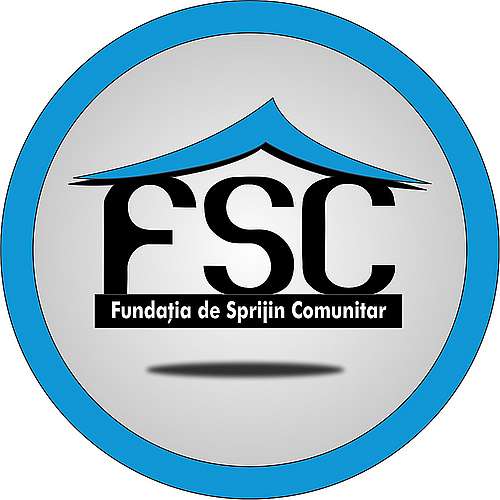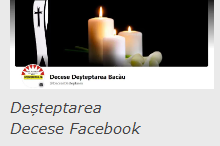The Jewish community of Bacău celebrated Rosh Hashanah 5785, the Jewish New Year, on Wednesday, October 2. The Gregorian year 2024 corresponds to the Hebrew year 5785. The event was attended by community members from Bacău, Roman, and Piatra Neamț, including County Councillor Ilie Bîrzu, the president and secretary of the County Branch of the Heroes’ Cult, Dănuț Voicu and Petru Done, the manager of the „Iulian Antonescu” Museum Complex, Dr. Alin Popa, and leaders of the national minorities of Armenians, Roma, Italians, and Germans from Bacău—Vasile Agop, Doru Tănale (European Roma Association for Progress and Intercultural Promotion), Silviu Niță, and Mihaela Brunhuber.
The celebration began with the greeting „Shana Tova Umetuka 5785,” pronounced by the president of the Jewish Community of Bacău, Hainrich Brif, at the start of the Rosh Hashanah seder. This year, however, the celebration was overshadowed by the concerning events taking place in Israel, affecting the Jewish people. „A good and sweet New Year!” the president from Bacău wished. „May we be inscribed in the Book of Life for health, PEACE, and joy this New Year! We know that the daily greeting among the Jewish people is ‘Shalom,’ which means both ‘Good day!’ and ‘Hello!’ but its true meaning is ‘Peace!’ Sadly, we seem to be getting further from achieving this ideal.”
The Rosh Hashanah ritual was duly observed, beginning with the lighting of candles by young Emi Leibu, who also recited the appropriate blessings.
Next followed the traditional Kiddush—blessings over red wine and bread dipped in honey, in which all participants joined, reciting the „Hamotzi” prayer (symbolizing the changing of the seasons).
As part of the celebration, Jews also eat dates in the hope of having no more enemies, and apples with honey, to wish for a sweet and pleasant year ahead. Plates at the table also include beets, intended to drive away enemies in the new year, and pumpkin, symbolizing the cancellation of unfavorable deeds. Carrots are included to pray for God to annul any bad decisions against people, as well as for prosperity. Pomegranate is eaten so that the new year will be better and good deeds will be as numerous as the seeds of the fruit.
The meal also featured the famous Jewish soup and fish, which symbolizes abundance, prosperity, and fertility. The fish head represents the hope that in the coming year, participants will be leaders (like the head) and not followers (like the tail of the fish).
Following the meal, the president of the community sounded the shofar—made from a ram’s horn. According to tradition, Rosh Hashanah commemorates the creation of the first humans, Adam and Eve. In the Torah, it is also referred to as Yom Hatruah (יום תרועה), the Day of Blowing (originally from trumpets, today from the shofar horn).
What is Rosh Hashanah?
Rosh Hashanah is a major holiday for Jews, and this year it lasts until October 4, beginning with the festive dinner on the evening of October 2. The Jewish community of Bacău welcomed its members and their guests with tables full of cake, mineral water, fruit, and brandy, along with traditional slices of apple and honey.
Rosh Hashanah is also called the Head of the Year (in Hebrew, „rosh” = head; „shanah” = year). The customary greeting during this time is „Shana Tova!” („May you have a good year!”). The date of the New Year changes every year because the Jewish calendar is lunisolar, with 12 months, and the year changes in autumn, in September or October. Members of the community say that throughout the year, we act out of routine, which must be broken at least once a year to reflect on whether the path we’re on is still the right one. Once a year, we live „with our heads,” and the decision made during Rosh Hashanah will affect the whole year. Therefore, on this day, one should avoid getting angry, as it could set the tone for the entire year.
At the end of the celebration, the „Shalom” Choir of the Jewish Community, conducted by Mariana Herman, performed several traditional songs. The program concluded with a famous Jewish song, „Let There Be Peace on Earth,” with lyrics adapted by the poet Adrian Păunescu. The final verse goes: „Ministers of the world, listen / Not to hidden interests / But to the many desires / Let there be peace, peace, peace on Earth!” The participants did not perform the traditional hora dance, as a mark of respect for those currently enduring difficult events in Israel.
Hainrich Brif explained: „The New Year’s celebration is more solemn than festive. It is also called Yom Hadin (Judgment Day) because it inaugurates a ten-day period (Aseret Yemei Teshuva) during which the fate for the coming year is decided. During this period, through prayer and good deeds, one can influence the Divine Decision for the better. The powerful sounds of the shofar (ram’s horn) remind us of the solemn nature of the holiday and the start of the ten days of repentance, Aseret Yemei Teshuva, which culminate on Yom Kippur, when the sentence set by the Divine on Rosh Hashanah becomes final.”



















